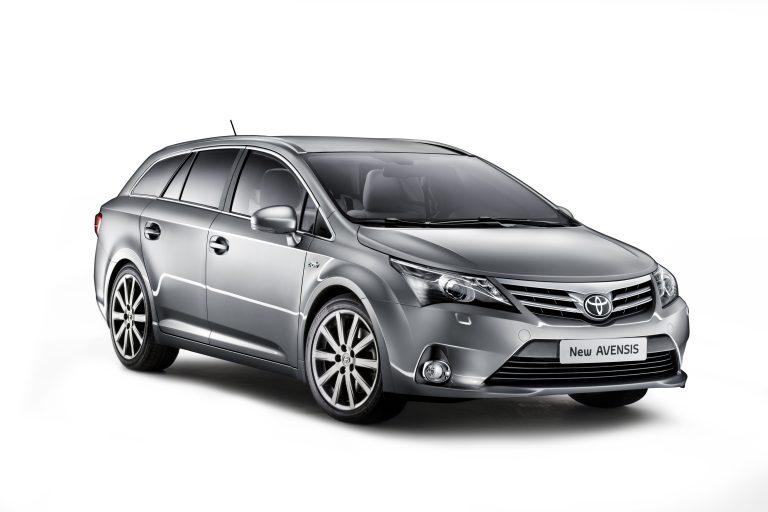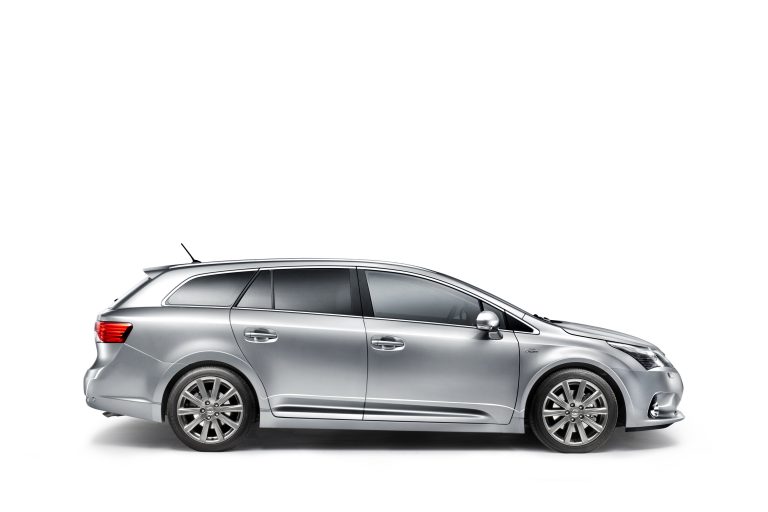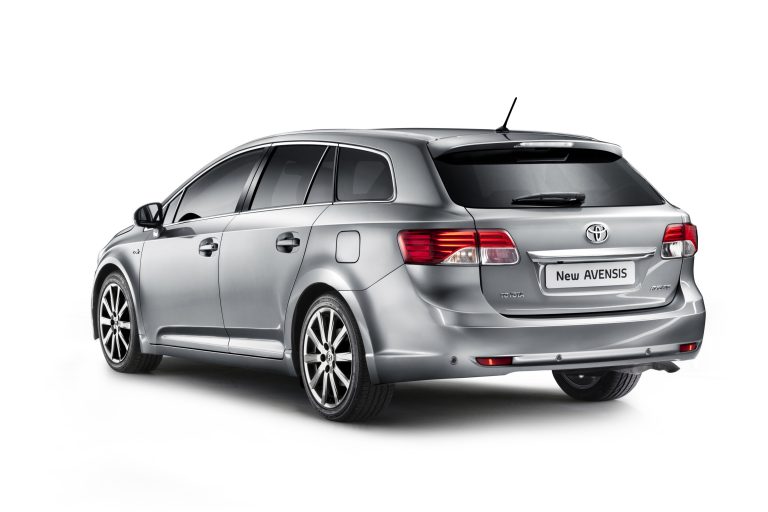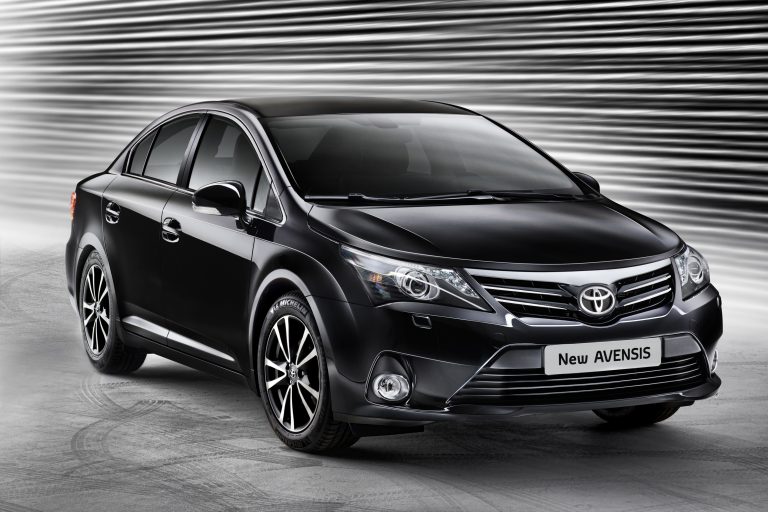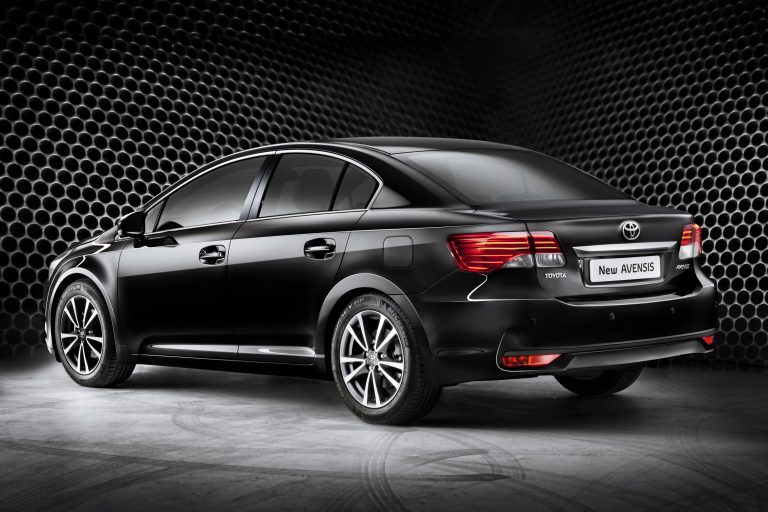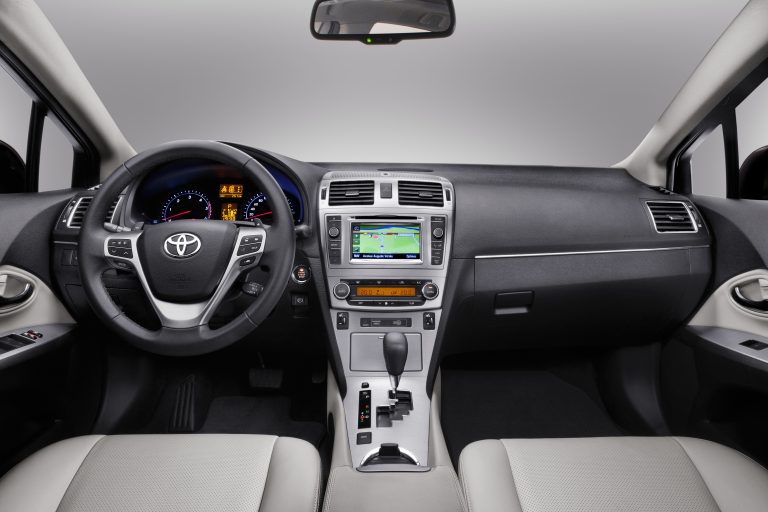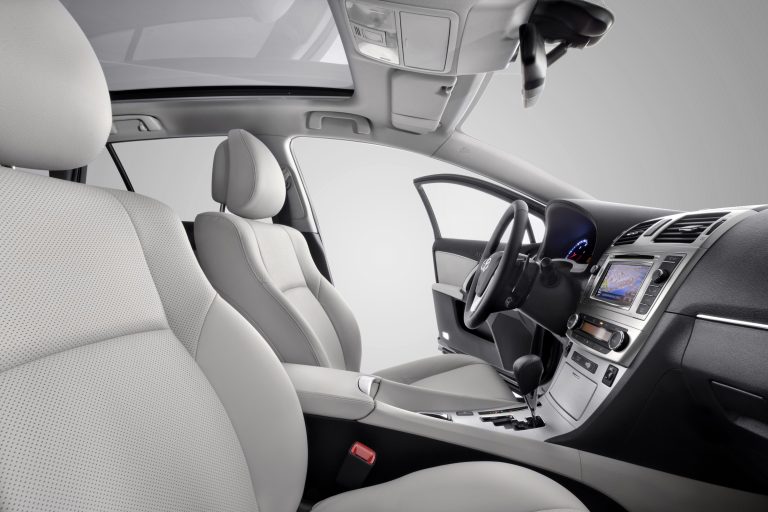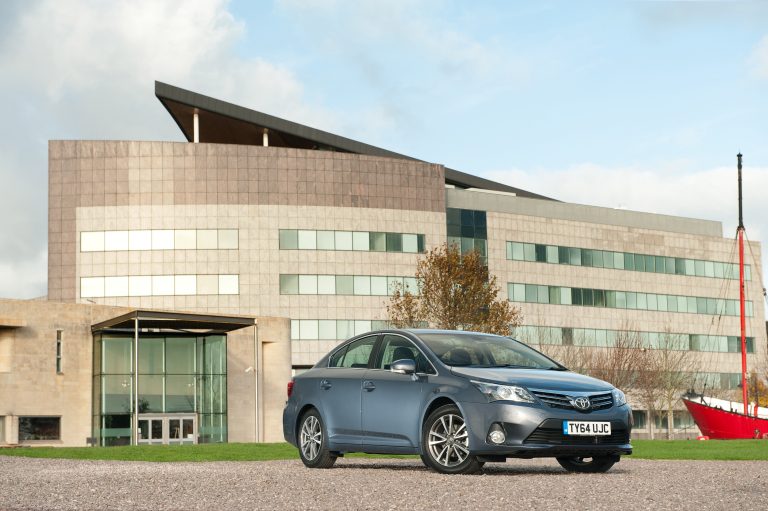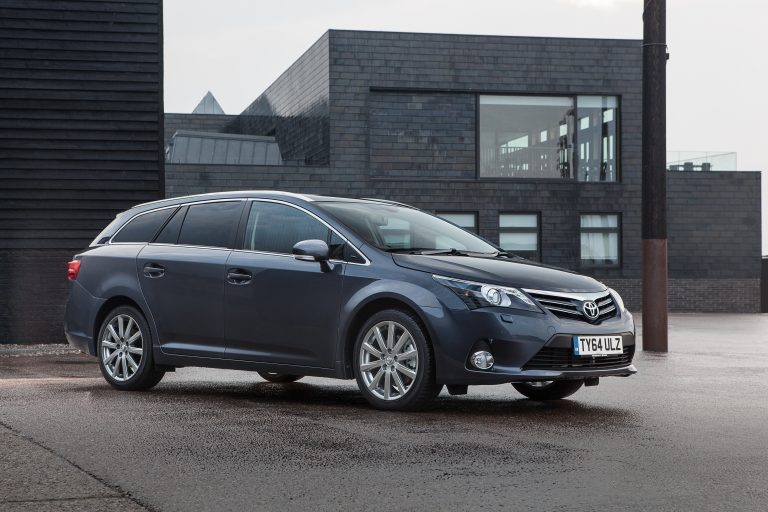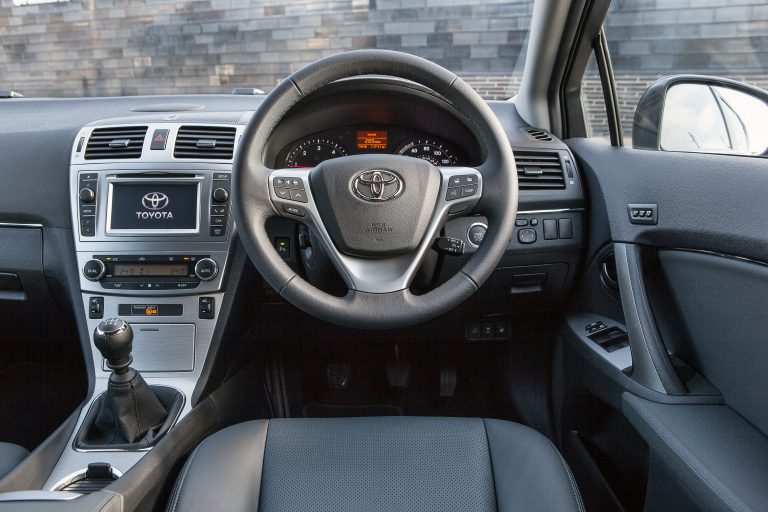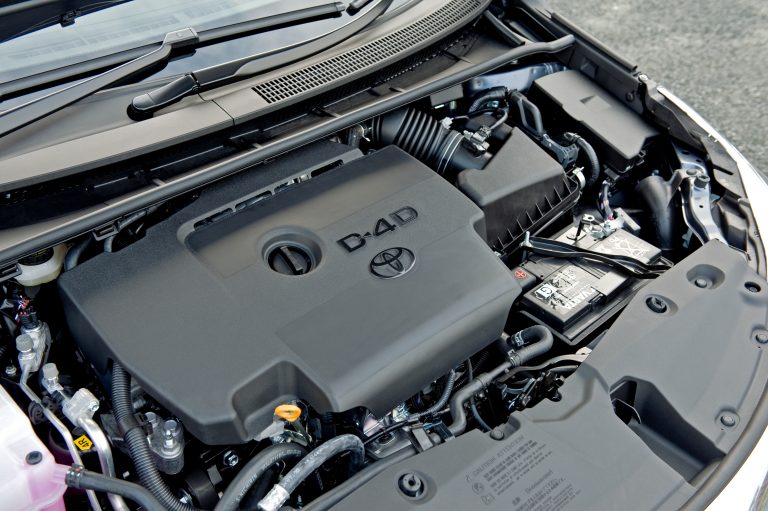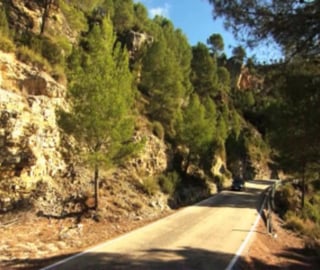New Toyota Avensis: Greater Efficiency and Sophistication
The new Toyota Avensis makes its world debut at the 2011 Frankfurt Motor Show, a substantially revised model that builds on the spaciousness, practicality and fuel efficiency of the current, third-generation car. It features a bolder, more refined exterior design and improvements to the finish quality, comfort and NVH in the cabin. Driving dynamics have been improved and a new grade structure (UK details to be announced later) will provide even more value for money.
The 2.0-litre D-4D engine has been revised to give significant improvements in fuel consumption and CO2 emissions. With a tax threshold at 120 g/km in almost a third of European countries, the 2.0 D-4D’s 119 g/km will attract generous tax benefits for both private and fleet buyers.
Designed and engineered in Europe and built exclusively at Toyota’s Burnaston factory in the UK, Avensis was launched in 1997 and is now firmly established in the European D-segment, selling 70,585 units across the region in 2010 to take a 5.8 per cent segment share.
EXTERIOR DESIGN
- New Toyota design direction
- Bolder, more dynamic styling
- Restyled rear for the saloon
The overall dimensions of the Avensis saloon and tourer remain unchanged, but both have been extensively restyled.
A bolder, more refined frontal treatment displays the new Toyota family ‘face’. A key element in this is a change in the proportions of the upper and lower grilles, with the emphasis now on making the lower grille larger for a more assertive, dynamic look.
The new grille design is flanked by narrower headlamps which emphasise the elegant proportions of the new styling. The headlamps now incorporate daytime running lights.
The lower bumper is sculpted with a strong, protruding centre section that houses a large air intake, focusing attention on the lower half of the vehicle. Together with the crisp detailing of integral foglamp housings at each corner, the design gives Avensis a wider, more purposeful stance and ground-hugging appearance.
At the rear there is new rear bumper, which incorporates a centre guard on saloon models. The combination lamp clusters and foglamps have been redesigned, making them more prominent and improving visibility. A new chrome trim for the licence plate adds a further touch of elegance.
The 16-inch steel wheels have new-design covers and the 17-inch Fuji alloys have new colour and machine facings. The other 17 and 18-inch wheels available for Avensis gain a new, darker finish treatment.
INTERIOR DESIGN
- Improved quality in touch and appearance
- Introduction of Toyota touch and Go Plus
Avensis’s cabin is already notable for its comfort, roominess and practicality. Now it benefits from higher perceived quality across the range, with upgraded upholstery offered in new colours, and the introduction of Toyota Touch and Go Plus, the most advanced yet affordable touch-screen satellite navigation system in the D-segment.
The appearance and feel of the entire dashboard have been improved. The centre console has been redesigned to improve the layout and operability of the switchgear. The central air vents have also be re-shaped and share the same new metal paint finish of the centre console, and the side vents gain a chrome trim.
The tactile quality of frequently handled parts such as the door grips, switchgear and front console all gain higher quality trim. The instrument dial backlighting has been changed for amber to white, and leather has been introduced to cover the rear console box lid.
The front seatbacks have been redesigned to offer better lateral support and comfort, and the upholstery has been upgraded across the range, with new colours available, too.
Multimedia system
New Avensis benefits from Toyota’s range of affordable, touch-screen multimedia equipment: Toyota Touch, and the Toyota Touch and Go and Toyota Touch and Go Plus navigation systems.
Toyota Touch and Go Plus
Making its world debut in new Avensis, Touch and Go Plus adds numerous, additional advanced technology features to Toyota’s touch-screen multimedia system.
It features advanced voice recognition for navigation address input, one-shot destination entry, music search and play, and phone contact search and call. It also incorporates email send and receive, a text-to-speech message readout facility, a calendar and, through a Gracenote database, a ‘Play More Like This’ music function.
Enhanced satellite navigation mapping incorporates 3D city modelling and landmarks, and an additional Traffic Patterns database showing the average speed on road sections of a programmed route, according to the time, day and month. The system includes three years’ free map and software updating.
|
Audio |
Navigation |
||
|
ENTRY AUDIO |
TOYOTA TOUCH |
TOYOTA TOUCH AND GO |
TOYOTA TOUCH AND GO PLUS |
|
Functions |
Additional functions |
Additional functions |
Additional functions |
|
Radio-CD |
6.1” touch-screen |
Full map navigation |
11 speakers |
* Vehicle settings availability varies according to model and grade
** Requires Bluetooth® DUN or PAN profile, a data plan and a network operator allowing tethering
*** Bluetooth Message Across Profile required on the mobile phone
SPECIFICATIONS AND EQUIPMENT
- New specifications and grade structure
- Increased level of standard equipment
Every grade in the new Avensis range will be revised to deliver greater value for money through higher levels of standard equipment and quality.
Specific details of UK grades and equipment will be announced later, but all models will adopt integral daytime running lights. As detailed in the interior design section (above), cabin trims and upholstery have been upgraded with new finishes, designs and colour choices.
IMPROVED 2.0 D-4D ENGINE AND DRIVING DYNAMICS
- 2.0 D-4D engine CO2 emissions reduced by 20g/km to 119g/km without compromising performance
- Lower emissions level attracts tax benefits in several European countries
The 124bhp 2.0 litre D-4D turbodiesel engine has been extensively revised, with the introduction of a new turbocharger, extensive combustion chamber modifications and improved glow control. As a result, torque delivery is more linear, fuel efficiency has improved and CO2 emissions have been reduced by about 15 per cent – from 139 to 119 g/km – in both saloon and tourer models.
This marked reduction in CO2 emissions has significant total ownership cost implications. A taxation threshold of 120g/km is established in almost a third of all European countries, and the revised 2.0 D-4D unit’s 119 g/km CO2 figure will thus deliver tax benefits for both private and fleet drivers.
In addition to the revised 124bhp 2.0 D-4D, the new Avensis’ powertrain range further comprises a 148bhp, 2.2 D-4D unit available with either a Diesel Particulate Filter (DPF) or a Diesel Particulate and NOX Reduction filter (DPNR); a 145bhp 1.8-litre Valvematic petrol engine is also available.
All engines are matched to six-speed manual transmissions. The 148hp 2.2 D-4D DPNR unit may be optionally equipped with a six-speed automatic transmission, and both 1.8 and 2.0-litre petrol engines may be fitted with Toyota’s Multidrive S continuously variable transmission with steering wheel mounted paddle shifts.
New Avensis retains the proven front MacPherson strut and rear double wishbone suspension layout of its predecessor, but improvements to the platform, chassis and powertrains deliver greater ride comfort and handling agility.
SAFETY AND DRIVER ASSISTANCE TECHNOLOGIES
- New Avensis equipped to meet the highest safety standards
- Advanced safety technologies, including Adaptive Cruise Control (ACC)
New Avensis shares the world-class safety performance of the previous generation model, which was awarded a maximum, five-star rating in the 2009 Euro NCAP crash test programme.
Toyota is committed to achieving the highest levels of active, passive and pedestrian impact safety, and took the lead in the development of advanced safety technologies such as pre-crash safety, lane departure warning and lane keeping assistance systems.
Advanced Pre-Crash Safety System
An Advanced Pre-Crash Safety (PCS) system is available as an option on new Avensis (according to grade). It uses a millimetre-wave radar sensor to scan the road ahead, recognising potential hazards and assisting the driver in reducing the chances of a collision.
If there is a high possibility of a collision, PCS will alert the driver and, when he or she begins to brake, provide braking assistance to supplement the braking effort, simultaneously activating the seatbelt pretensioners. If the driver does not brake and a collision is inevitable, the system will automatically apply the brakes to reduce impact speed.
Adaptive Cruise Control
Adaptive Cruise Control (ACC) works in tandem with the PCS system. It will automatically maintain a selected distance from the vehicle in front. Once the road ahead is clear, the vehicle automatically returns to its original cruising speed.
Lane Departure Warning and Lane Keeping Assist
PCS is further complimented by Lane Departure Warning (LDW) and Lane Keeping Assist (LKA) systems.
Using digital camera technology mounted behind the rear-view mirror, these systems can help to prevent unintended lane changes by first giving an audible and visual warning and then applying corrective steering torque to help the driver remain within a chosen lane.
Additional Active Safety Systems
All new Avensis versions are fitted, as standard, with ABS, Electronic Brakeforce Distribution (EBD), Brake Assist (BA), Traction Control (TRC) and Vehicle Stability Control (VSC+).
Adaptive Front Lighting
New Avensis models equipped with High Intensity Discharge (HID) headlamps are fitted with an Adaptive Front Lighting System (AFS). Calculating where the vehicle will be in three seconds’ time according to steering operation and vehicle speed, the system swivels the low beam projector headlamps in response to steering input, helping to light up a bend as the driver steers into it.
AFS is also equipped with a dynamic levelling function, which automatically maintains a constant beam height. The combination of these two functions achieves optimum light distribution in all driving conditions.
ENDS

